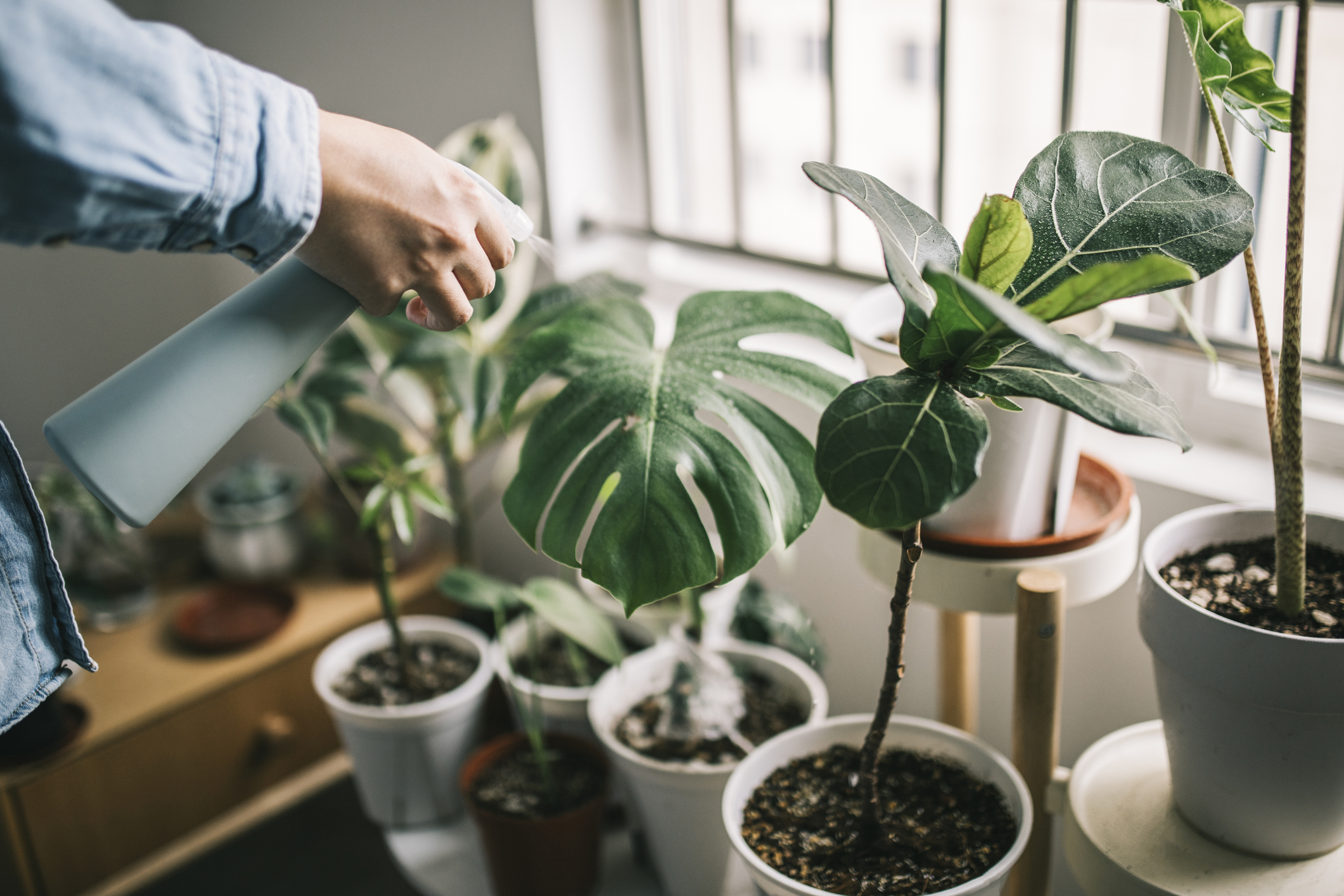A plant-filled home could help prevent infections, study finds


A free daily email with the biggest news stories of the day – and the best features from TheWeek.com
You are now subscribed
Your newsletter sign-up was successful
A plant-filled home could actually help protect you from disease, including COVID-19, a new study has found.
"This is a very good proof-of-concept study on whether plants can help disinfect air," said Kristian Dubrawski, one of the study's co-authors. "Indoor plants could contribute to deactivation of pathogenic bacteria and viruses, such as airborne COVID-19 in homes and workplaces."
Plants produce hydrogen peroxide (H2O2) during photosynthesis which "contributes to atmospheric cleansing," per the report. The chemical is often used in disinfectants and when bleaching hair, writes British newspaper i.
The Week
Escape your echo chamber. Get the facts behind the news, plus analysis from multiple perspectives.

Sign up for The Week's Free Newsletters
From our morning news briefing to a weekly Good News Newsletter, get the best of The Week delivered directly to your inbox.
From our morning news briefing to a weekly Good News Newsletter, get the best of The Week delivered directly to your inbox.
Plants also have a large "potential for climate change mitigation," the study notes. "H2O2 produced in vegetated areas may directly ... or indirectly" help control "the persistence of methane, carbon monoxide, nitrous oxide, and some ozone-depleting gases," which worsen global warming. "Hydrogen production by plants may have implications in indoor air quality (such as hospitals); high-density regions (such as megacities) and rural regions impacted by forest fires," the study explains.
The amount of hydrogen peroxide produced varied by species and type of plant, likely due to differing rates of photosynthesis and transpiration, which is "the process of water movement through a plant and its evaporation from leaves, stems, and flowers," i writes. "If evidence like this grows, then low-cost behavior, like buying more plants, would likely be something that people would much more be willing to do than some other things, like mask-wearing or social distancing," remarked Simon Williams of Swansea University.
"The challenge will be in communicating to the public that things like having more indoor plants can help indoor air quality and reduce the spread of airborne viruses," he said.
A free daily email with the biggest news stories of the day – and the best features from TheWeek.com
Devika Rao has worked as a staff writer at The Week since 2022, covering science, the environment, climate and business. She previously worked as a policy associate for a nonprofit organization advocating for environmental action from a business perspective.
-
 Local elections 2026: where are they and who is expected to win?
Local elections 2026: where are they and who is expected to win?The Explainer Labour is braced for heavy losses and U-turn on postponing some council elections hasn’t helped the party’s prospects
-
 6 of the world’s most accessible destinations
6 of the world’s most accessible destinationsThe Week Recommends Experience all of Berlin, Singapore and Sydney
-
 How the FCC’s ‘equal time’ rule works
How the FCC’s ‘equal time’ rule worksIn the Spotlight The law is at the heart of the Colbert-CBS conflict
-
 5 recent breakthroughs in biology
5 recent breakthroughs in biologyIn depth From ancient bacteria, to modern cures, to future research
-
 Blue Origin launches Mars probes in NASA debut
Blue Origin launches Mars probes in NASA debutSpeed Read The New Glenn rocket is carrying small twin spacecraft toward Mars as part of NASA’s Escapade mission
-
 Dinosaurs were thriving before asteroid, study finds
Dinosaurs were thriving before asteroid, study findsSpeed Read The dinosaurs would not have gone extinct if not for the asteroid
-
 Canyons under the Antarctic have deep impacts
Canyons under the Antarctic have deep impactsUnder the radar Submarine canyons could be affecting the climate more than previously thought
-
 SpaceX breaks Starship losing streak in 10th test
SpaceX breaks Starship losing streak in 10th testspeed read The Starship rocket's test flight was largely successful, deploying eight dummy satellites during its hour in space
-
 Rabbits with 'horns' sighted across Colorado
Rabbits with 'horns' sighted across Coloradospeed read These creatures are infected with the 'mostly harmless' Shope papilloma virus
-
 Lithium shows promise in Alzheimer's study
Lithium shows promise in Alzheimer's studySpeed Read Potential new treatments could use small amounts of the common metal
-
 Scientists discover cause of massive sea star die-off
Scientists discover cause of massive sea star die-offSpeed Read A bacteria related to cholera has been found responsible for the deaths of more than 5 billion sea stars
